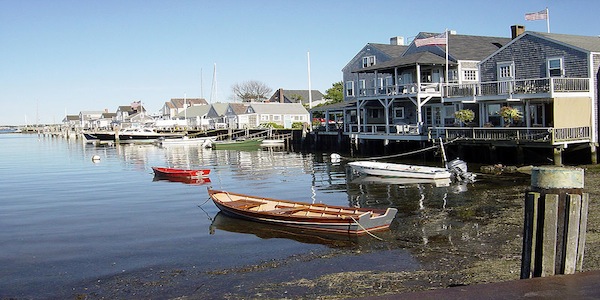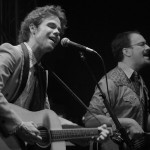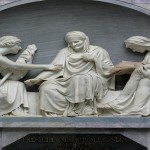Like many American Christians, I grew up with a bunch of dualisms: we need to scorn earthly things for heavenly things; the body is perishable but the soul lasts; church is sacred in a way the world isn’t. In the past few years, I’ve read Christian writers like Marilynne Robinson and Wendell Berry who have made me question the necessity and even the wisdom of these kinds of dualisms. Robinson and Berry both have a very deep, incarnational sense of the beauty of this world, the all-pervasive sacredness of creation, and the eternal consequences of our embodiedness. There is no division between loving earthly things and loving heavenly things because the heavenly is experienced through the earthly. The earth is a huge sacrament of God’s presence. How could we not love it? Furthermore, the body is, in the end, just as immortal as the soul, for it will be resurrected. The Bible promises us a new heavens and a new earth.
One thing I’ve been thinking about a lot—especially as preparations get underway for the summer issue of Fare Forward, whose theme is “mind/body” and dualisms more broadly—is how to reconcile these anti-dualistic aspects of the Christian tradition with the very real dualisms that are part of that tradition as well. This past Advent, Catholics would have heard the following prayer during mass:
May these mysteries, O Lord, in which we have participated, profit us, we pray, for even now, as we walk amid passing things, you teach us by them to love the things of heaven, and hold fast to what endures.
This is the kind of thing that I would have easily accepted a few years ago, but which now troubles me. The implication here is that the things of this world—our bodies, the world itself— are passing in relation to the things of heaven, which alone endure. But our bodies do endure, as the Church’s greatest theologian Thomas Aquinas taught.
How to reconcile this? I could, of course, just ignore the dualism inherent in the prayer, but the liturgy expresses the faith of the church, which I am bound to adjust myself to no matter what I happen to feel or think.
I think one way to look at it, maybe, is that we ought not to take these kinds of dualisms literally. It’s not literally true that the body passes away (at least, that’s not the last fact about it). Rather, I think these sayings are given us for our instruction. I know that in my life personally a deep appreciation for creation can sometimes be spiritually fruitful, but it can also be spiritually destructive. I’m not really one of those people who’s felt a restlessness in the face of the world, that restlesness which Augustine thought only God can answer. That experience isn’t in my existenital toolbox. But I do know that when I get to comfortable with the world, I get lazy. I get in a stupor. And I know the destructiveness of that, not only spiritually, but in every area of my life.
For me, these dualisms, then, can act as a reminder to stay active and vigilant, to not let myself succumb to laziness. The body will endure, but viewing it with a certain level— only a certain one—of detachment can help me, in my fallen state, be a little more virtuous.
Anyway, I would very much appreciate reader input on this. I still feel far from an answer.
[Image of Nantucket from Wikipedia]













